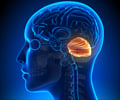Ropinirole Medication Information
Learn everything you need to know about Ropinirole-pronunciation, uses, dosage guidelines, indications, and when to take or avoid it.
Get up-to-date information on side effects, precautions, warnings, and proper storage to ensure safe usage.
Explore Ropinirole brand names commonly used in India and internationally, along with detailed pricing information. Consult your healthcare provider for tailored medical advice.
Generic Name : Ropinirole Pronunciation : roe pin' i role ICD Code : Y46.7 Therapeutic Classification : Antiparkinson AgentsBrand Names or Trade Names of Ropinirole
India :
International :
Requip
Why is Ropinirole Prescribed? (Indications)
This medication is a dopamine agonist, prescribed for Parkinson's disease and restless leg syndrome (RLS). It works by acting in place of dopamine, a natural substance in the brain that is needed to control movement.When should Ropinirole not be taken? (Contraindications)
Hypersensitivity.What is the dosage of Ropinirole?
The initial dose is 2 mg taken once daily for 1 to 2 weeks, followed by increases of 2 mg/day at 1-week.How should Ropinirole be taken?
It comes as a tablet to take by mouth, with or without food.What are the warnings and precautions for Ropinirole?
• Caution should be exercised in patients with history of heart problems, high or low blood pressure, liver disease, mental illness, sleep disorder, alcoholism, any allergy, who are taking this other medications, during pregnancy and breastfeeding.• It may cause dizziness, drowsiness, or fainting, do not drive a car or operate machinery and get up slowly from bed while taking this medication.
• Avoid alcohol consumption.
• Patient may develop with increased risk of skin cancer (melanoma); if you notice any unusual skin growths consult with your doctor immediately.
• It should not be used in children.
What are the side effects of Ropinirole?
Most Common - Involuntary movements, nausea, dizziness, hallucinations, drowsiness, abdominal pain/discomfort and low blood pressure.ENT - Inner ear trauma.
Gastrointestinal - Nausea, constipation, abdominal pain/discomfort, diarrhea and dry mouth.
General - Swelling in the extremities.
Musculoskeletal - Back pain.
Central Nervous system - Anxiety.
Heart - High blood pressure.








